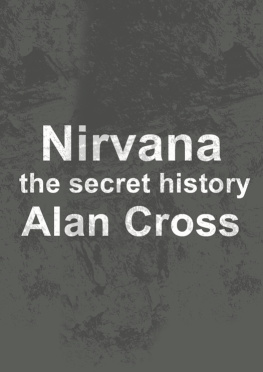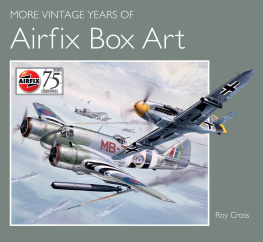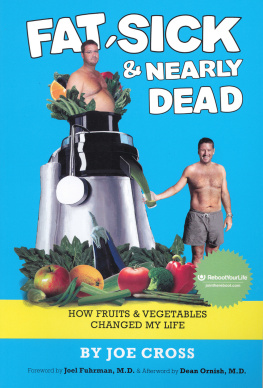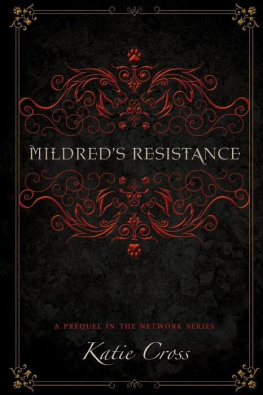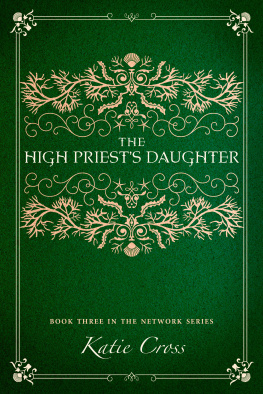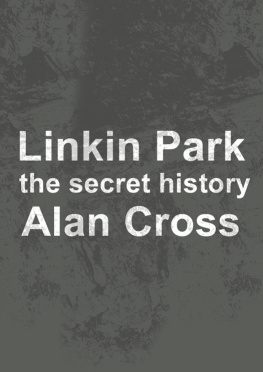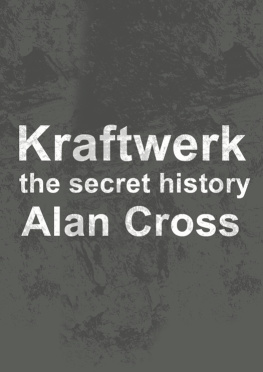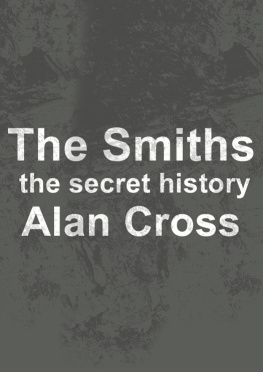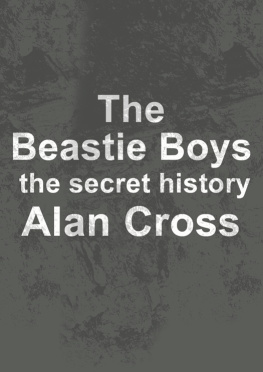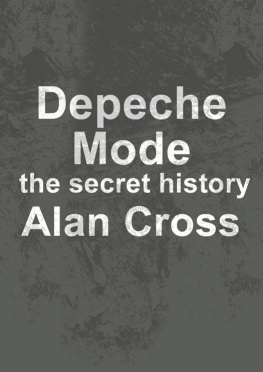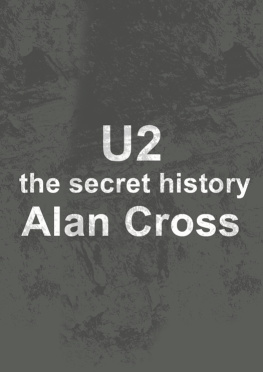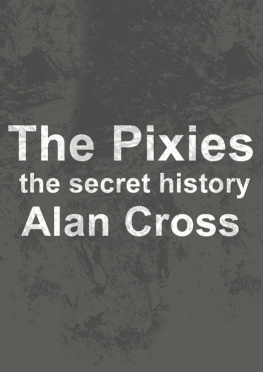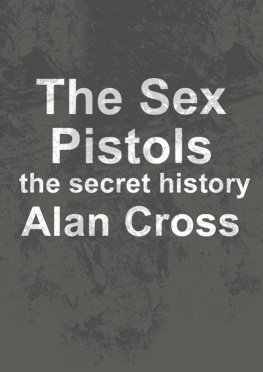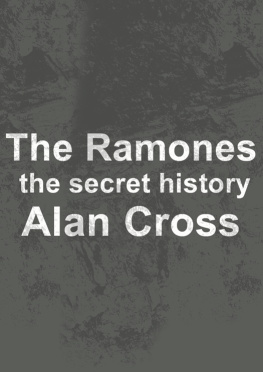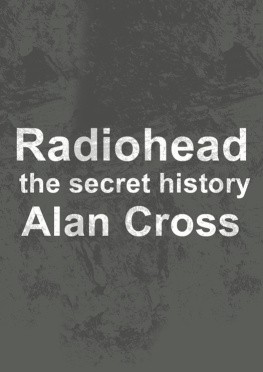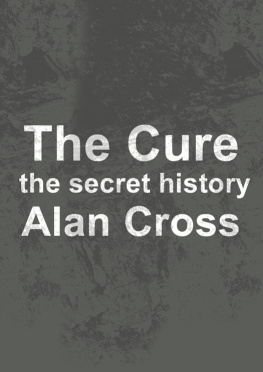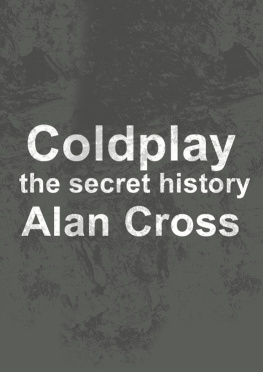Cross - Nirvana: the secret history
Here you can read online Cross - Nirvana: the secret history full text of the book (entire story) in english for free. Download pdf and epub, get meaning, cover and reviews about this ebook. year: 2011;2014, publisher: HarperCollins Canada;Audio Joe, genre: Detective and thriller. Description of the work, (preface) as well as reviews are available. Best literature library LitArk.com created for fans of good reading and offers a wide selection of genres:
Romance novel
Science fiction
Adventure
Detective
Science
History
Home and family
Prose
Art
Politics
Computer
Non-fiction
Religion
Business
Children
Humor
Choose a favorite category and find really read worthwhile books. Enjoy immersion in the world of imagination, feel the emotions of the characters or learn something new for yourself, make an fascinating discovery.
- Book:Nirvana: the secret history
- Author:
- Publisher:HarperCollins Canada;Audio Joe
- Genre:
- Year:2011;2014
- Rating:5 / 5
- Favourites:Add to favourites
- Your mark:
- 100
- 1
- 2
- 3
- 4
- 5
Nirvana: the secret history: summary, description and annotation
We offer to read an annotation, description, summary or preface (depends on what the author of the book "Nirvana: the secret history" wrote himself). If you haven't found the necessary information about the book — write in the comments, we will try to find it.
Nirvana: the secret history — read online for free the complete book (whole text) full work
Below is the text of the book, divided by pages. System saving the place of the last page read, allows you to conveniently read the book "Nirvana: the secret history" online for free, without having to search again every time where you left off. Put a bookmark, and you can go to the page where you finished reading at any time.
Font size:
Interval:
Bookmark:
Rock and roll can be as volatile as a truck full of diesel fuel and fertilizer or a house with a gas leak in the basement. All it takes is one spark and in less time than it takes for the brain to register what the eye is seeing, the landscape changes forever. Predicting these explosions is all but impossible. At least you can sweep for land mines.
Until the early 1990s, post-punk alternative music occupied its own little corner of the rock universe. For the better part of a decade, it had been left to evolve on its own, like mold in a forgotten petri dish. This was the stuff of indie labels, cramped clubs, weird little record stores and goofy college radio programs. The occasional indie band bubbled up into the mainstreamR.E.M. is the best examplebut for the most part, this music was largely ignored by the big labels and the general public. If one of the majors did sign an alternative group, chances are they were just looking for a tax write-off.
That all changed when a band from a tiny logging town in Washington released their second album. Not only were Nirvana the spark for the explosion, they were a catalyst for a variety of events that would ultimately change the complexion of the entire rock and roll universe. A new generation of music fans was unexpectedly swept up in a cultural sea change, as a new type of rock took hold, creating a new world where the old rules no longer applied. By the time we heard the terrible news on April 8, 1994, the momentum of the new alt-rock attitude had grown far beyond the effect of just one album. The spirit of indie rock was calling the shots.
Kurt Donald Cobain was born on February 20, 1967, about 100 miles southwest of Seattle in Aberdeen, Washington, a small logging center at the end of Route 8a town that had the dubious distinction of one of the highest suicide rates in the United States. Kurts father, Donald, was a mechanic at the local Chevron gas station, while his mother, Wendy, tried to be a good stay-at-home mom.
He was hyperactive to the point where his energy had to be cranked down with Ritalin several times a week. One area where his attention disorder was conspicuously absent was music. His aunt Mary introduced Kurt to the Beatles and then to the guitar, teaching him his first chords.
A local punker named Buzz Osborne had the greatest effect on Kurts musical outlook. Buzz headed up a band called the Melvins and sometimes let Kurt act as a volunteer roadie. He would also slip Kurt the occasional cassette of some of his favorite bands: the Sex Pistols, Black Flag, Hsker Du, the Dead Kennedys, Sonic Youth. Until he heard those tapes, Kurts knowledge of punk had consisted mainly of what he read in Creem magazine plus his prized copy of the Clashs Sandinista!
With his only interests being rock, art and drugs (Kurt was quite the stoner in school), he set about forming his first bands. The first appears to have been Fecal Matter, followed by Brown Towel (sometimes mis-reported as Brown Cow). Then he met Krist Novoselic (born May 16, 1965), a lanky six-foot-seven kid he kept bumping into at Melvins shows. Their first band went by a variety of names: Skid Row, Ted Ed Fred, Throat Oyster, Pen Cap Chew, Windowpane. There were also a short-lived Melvins spin-off group called the Stiff Woodies and a CCR cover band called the Sellouts. Nirvana was eventually the winning name when Kurt decided that he didnt want a typical angry or stupid name for his punk band.
On June 11, 1988, Nirvana recorded their first official single. Love Buzz was an obscure cover, originally recorded by a Dutch band called Shocking Blue. Sub Pop issued 1,000 hand-numbered seven-inch singles in October 1988 and later included it as one the first installment in its new Sub Pop Singles Club. A second song, Spank Thru, was recorded on September 27 and eventually included on Sub Pop 200, a compilation of bands on the roster.
When the album was released in June 1989, Kurt Cobain found that he didnt like it as much as he had six months earlier. It didnt sound as big or as heavy as he first thoughtplus he wished he had spent more time working on the melodies. Sub Pop, however, didnt seem to notice; good punk songs didnt have melodies. Nevertheless, Kurt quietly began to incorporate more pop into his punk. This change in direction developed through the rest of 1989, especially during a successful spin through the UK and Europe. When the group recorded the Blew EP late in the summer of 1989 (it was released in December), some of the stylistic changes were already evident.
Its now time to focus on drummers. From the beginning, Kurt and Krist had a hard time finding someone with ability and ambition to match their own. Aaron Burckhard was Nirvanas first drummer, but his desire to party overwhelmed his need to rehearse and he was terminated. Dale Crover of the Melvins was always a welcome fill-in, but when Buzz Osborne moved the band to San Francisco, Crover was no longer available. A metalhead friend of the Melvins, Dave Foster, filled in for a few months in 1988, but the chemistry wasnt right. He was fired after going to jail for assaulting a rival for his girlfriends affections. Chad Channing joined in time to appear on most of Bleach (Crover appeared on three tracks) but he eventually ran afoul of Kurt and was squeezed out. Channings spot was temporarily filled by Dan Peters of Mudhoney, who played exactly one show with Nirvana on September 22, 1990.
In April 1990, about a year before the band jumped from Sub Pop to DGC, Nirvana had begun work on a series of demos for their second album. Channing was the drummer when the group made their first trip to Butch Vigs Smart Studios in Madison, Wisconsin. In May, after the group returned home, Kurt fired him. Losing a drummer at such a crucial timewith a new album and Sub Pops problems (discussed below)might have been disastrous had it not been for the fortuitous appearance of David Eric Grohl (born January 14, 1969) at that one-and-only gig featuring Dan Peters.
Grohl was an ex-member of a pretty solid DC punk band called Scream, who had met Kurt and Krist backstage at a Melvins show in San Francisco earlier that year. When Scream broke up shortly thereafter, Grohl found himself stranded in Los Angeles with no band and no money. A phone call to Buzz Osborne put him in touch with Nirvana who, predictably, were going through yet another drummer crisis. Within a few weeks, Daveone of the hardest-hitting drummers Kurt and Krist had ever seenwas a full-fledged member of Nirvana. It was the fall of 1990.
Total cost of the project? A very reasonable $130,000.
Nevermind was officially released on September 24, 1991. Exactly 46,251 copies were pressed up and sent to record stores around the world. Everyone associated with the project hoped that it would sell at least as well as the last Sonic Youth record, at best 200,000 copies. Five months laterJanuary 11, 1992, the same day Nirvana appeared on Saturday Night LiveNevermind knocked Michael Jackson out of the number one spot on Billboard. It was selling 300,000 copies a week.
Led by Smells Like Teen Spirit, Nevermind became a genuine phenomenon. With their fusion of punk power and pop sensibilities, Nirvana somehow managed to bridge the gulf between the alternative world and mainstream rock and roll. The songs were powerful and uncompromising, yet accessible and appealing. At the same time, Cobain was able to reach a large, disenfranchised and alienated group of music fans who were hungry for a music to call their own. The galvanizing force of Nevermind was formidable. The rage and emptiness expressed on the album became a unifying force among the newly categorized Generation X. After years of recycled classic rock and spandex-and-hair bands playing power ballads, Nirvana was the first rock band in a long time that meant something, a long-overdue triumph of substance over style. Indie rock had begun to bring together a new generation who had been looking for a way to rebel through music.
Font size:
Interval:
Bookmark:
Similar books «Nirvana: the secret history»
Look at similar books to Nirvana: the secret history. We have selected literature similar in name and meaning in the hope of providing readers with more options to find new, interesting, not yet read works.
Discussion, reviews of the book Nirvana: the secret history and just readers' own opinions. Leave your comments, write what you think about the work, its meaning or the main characters. Specify what exactly you liked and what you didn't like, and why you think so.

